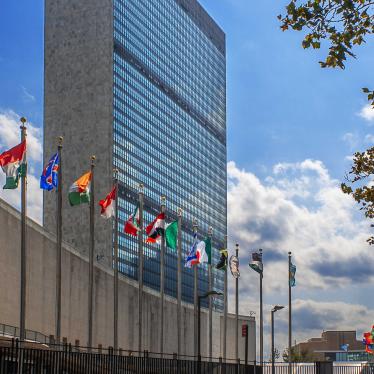A person accused of a criminal offense needs to know how and where the government got its evidence to get a fair shake at challenging it; that’s why the United States Constitution requires warrants and disclosure of information favorable to the defense. But now the US government is developing new guidelines to make it easier for federal law enforcement agencies to access communications information, such as emails and text messages, that the National Security Agency (NSA) has obtained through warrantless secret surveillance for intelligence purposes.
This raises the risk that the government will use evidence obtained through secret surveillance – and without a warrant – as part of criminal prosecutions.
A top government intelligence lawyer has already defended the forthcoming rules, maintaining that they are “not about law enforcement.” In reality, however, both the Federal Bureau of Investigation (FBI) and the Drug Enforcement Administration (DEA) are among the group of agencies likely to gain access to a greater range of information under the new policies. By expanding the sharing of secret surveillance information with law enforcement agencies, the guidelines would exacerbate the risk that the government will use this type of evidence to investigate and prosecute criminal defendants – and in a manner that violates their constitutional and human rights.
The guidelines concern data the US collects under Executive Order 12,333, which confers expansive surveillance powers that are not subject to judicial authorization or oversight. Reportedly, the government has used this order as the basis for sweeping surveillance programs that capture enormous numbers of electronic communications worldwide. Where people in the US are concerned, a former US State Department official has warned that the government may be using the executive order in a manner that violates the US Constitution’s Fourth Amendment, which prohibits unreasonable searches and seizures.
As we’ve pointed out, the US’s secret surveillance under the executive order has major implications for human rights, including fair-trial rights such as attorney-client confidentiality. However, the sharing of data obtained with law enforcement agencies would raise additional risks: Namely, that the government will use this evidence as part of criminal prosecutions, and that it will do so without notifying the defendants or adhering to its obligation under both US law and human rights law to disclose any evidence favorable to the defendant). US activists have already expressed concerns that the government may be failing to notify defendants when it uses evidence obtained under other secret surveillance laws and may even be hiding the origins of such evidence through a practice known as “parallel construction.”
Instead of dressing up highly questionable surveillance-sharing practices with new guidelines, the US government should ensure that all of its policies and practices fully uphold human rights and the constitution. No one should go to prison because of unreliable, inadequate, or illegally gathered evidence.




